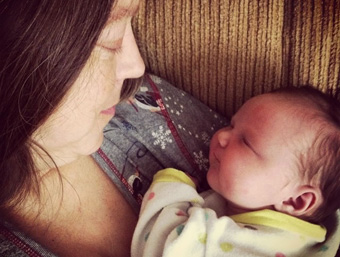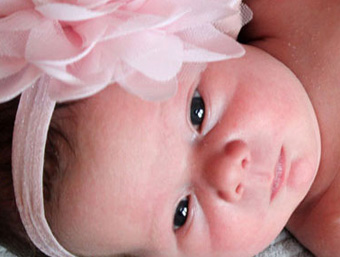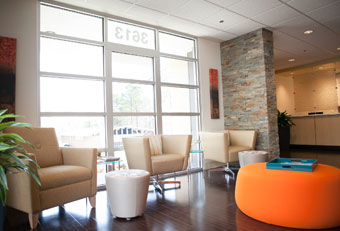 Endometrial ablation is a common procedure to treat heavy menstrual periods.
Endometrial ablation is a common procedure to treat heavy menstrual periods.
Pregnancy after ablation is not advised and it is recommended pregnancy should be prevented after endometrial ablation. As a result, many women will also have a tubal ligation procedure or their partners will have a vasectomy. Some women will come to regret their treatments and will begin to investigate the possibilities of pregnancy after an endometrial ablation procedure. Pregnancy after endometrial ablation is not without risks but successful pregnancy is possible.
We receive frequent inquires about tubal reversal after endometrial ablation and we have dedicated a blog series to endometrial ablation and pregnancy to provide these couples with more information.
We have authored two previous articles about pregnancy and endometrial ablation:
Pregnancy After Endometrial Ablation And Tubal Reversal
Effects of Endometrial Ablation on Pregnancy
This article will explain the concerns and risks of pregnancy after an endometrial ablation procedure.
Pregnancy And Endometrial Ablation: Risks
 Endometrial ablation removes the endometrial lining. This lining is, in part, responsible for heavy menstrual periods. The lining is also the nurturing environment for the early-fertilized egg.
Endometrial ablation removes the endometrial lining. This lining is, in part, responsible for heavy menstrual periods. The lining is also the nurturing environment for the early-fertilized egg.
When the endometrial lining is removed it interferes with implantation and increases the risk of causing female infertility (never getting pregnant) and recurrent pregnancy miscarriage (early pregnancy loss).
Endometrial Ablation and Tubal Blockage: Infertility
Endometrial ablation can cause infertility through tubal blockage. During an ablation destructive energy is applied to the inside of the uterus. This destructive energy can cause an abnormal healing response and can cause adhesions (scar tissue) can form within the uterus. Sometimes this destructive energy can cause the tubes to heal closed in the area where the fallopian tubes insert into the uterus.
Ablation, Ashermans, and Tubal Blockage
When the scar tissue is extensive and forms between the walls of the uterus this is called Asherman’s Syndrome. The scarring after an endometrial ablation can also cause tubal blockage in the intramural portion of the fallopian tube (the narrow portion of the tube which travels through the wall of the uterus). This scarring and tubal blockage can be a cause of infertility after ablation.
If you are considering trying to become pregnant after an ablation (whether you want to become pregnant through IVF or tubal reversal) then you should consider asking your doctor for an evaluation of the uterine cavity to determine if there is scar tissue from your ablation. Sometimes the doctor will perform a hydrosonogram (water ultrasound), or a hysterosalpingogram (HSG x-ray), or a hysteroscopy (look inside your uterus with a camera).
A hysteroscopy is often the best way to look for and to treat possible scar tissue after an endometrial ablation. If your uterus is severely scarred then natural pregnancy will not be possible. Your only option to have a baby would be IVF with a gestational surrogate (IVF with someone else to carry the pregnancy for you).
Endometrial Ablation and Miscarriage: Infertility
Early pregnancy miscarriage and infertility can be a result of endometrial ablation. The ablation procedure removes the pregnancy supportive endometrial lining. The uterine muscle, which can also be scarred, is what remains. The uterine muscle is not as receptive or supportive to the fertilized egg as is the uterine lining and many fertilized eggs will never attach- the end result is very early pregnancy miscarriage –or chemical pregnancies.
If you are having trouble understanding this…then a helpful analogy would be like stripping away all the top soil from your yard and then trying to plant a successful garden. It may not be possible without any supportive soil to provide critical nutrients.
Abnormal Placental Attachment
 If the fertilized egg should attach to the uterine muscle after the protective uterine lining has been removed then this increases the chance the early placenta will invade and grow abnormally deep into the uterine muscle.
If the fertilized egg should attach to the uterine muscle after the protective uterine lining has been removed then this increases the chance the early placenta will invade and grow abnormally deep into the uterine muscle.
This could cause later pregnancy miscarriage or, more concerning, abnormal placental attachment.
Without the soft, protective uterine lining, the early placenta could grow deep into the muscle. This deep placental growth into the uterine muscle is abnormal and causes the placenta to be extremely adherent. When the placental tissue grows into the uterine muscle this is an abnormal condition termed a placenta accreta.
A placenta accreta is a high-risk pregnancy condition, which could cause abnormal blood supply for the baby, fetal growth restriction (small baby), and the placenta may not detach from the uterine muscle after birth. When the placenta does not detach this increases the risk of heavy post partum bleeding, blood transfusion, and emergent hysterectomy (removal of the uterus).
Fetal Distress, C-sections, Hysterectomy And Blood Transfusion
If you become pregnant after an endometrial ablation and are fortunate enough to make it full term…then you may be able to have a vaginal delivery…. but you are at higher risk of having fetal distress and needing. a C-section.
The placenta may have been able to provide the baby with good blood supply, oxygen and other nutrients during the entire pregnancy, but it may not be able to keep up with the increased oxygen demands required with a lengthy labor. As the uterus contracts it squeezes the placenta and can decrease blood flow from the placenta to the baby. Normal placentas can often keep up with good blood supply to the baby despite the stresses of labor but an abnormal placenta cause be endometrial ablations destructive effect on the uterine lining may not be able to supply enough blood or oxygen during forceful labor contractions. Ultimately this may lead to fetal distress (decrease in the babies heart rate during contractions) and you may need a C-section to have the baby.
Sometimes placentas are very adherent to the uterine muscle because the endometrial ablation has removed the soft protective lining. The placenta may be so adherent that it will not separate. If this happens then the doctor may have to forcibly remove the placenta and/or perform a D and C. Heavy bleeding could occur and a blood transfusion and/or a hysterectomy may be required to treat the bleeding.
Pregnancy After Ablation: How Does Pregnancy Happen?
The goal of endometrial ablation is to treat heavy menstrual periods. Uterine ablations are effective; however, many women will have their bleeding resume and some will need additional or alternative procedures to decrease their menstrual periods. The same reason most women will have recurrence of bleeding after endometrial ablation is the same reason why women can become pregnant after a endometrial ablation. The lining is not effectively removed and may also grow back.
Pregnancies occur after endometrial ablation because of one reason: most endometrial ablation procedures are not 100% effective at removing the entire endometrial lining. Some lining usually remains even after the best endometrial ablation and some women can become pregnant after ablation when the fertilized egg finds a soft patch of endometrium.
Studies on Pregnancy After Endometrial Ablation
The tubal reversal experts of A Personal Choice are dedicated to providing more information on pregnancy alternatives after tubal ligaiton procedures.
For our next article, Pregnancy After Endometrial Ablation: Study Review, we will review the most recent publications in the medical literature that describe pregnancy outcomes of women who became pregnant after an endometrial ablation procedure.









